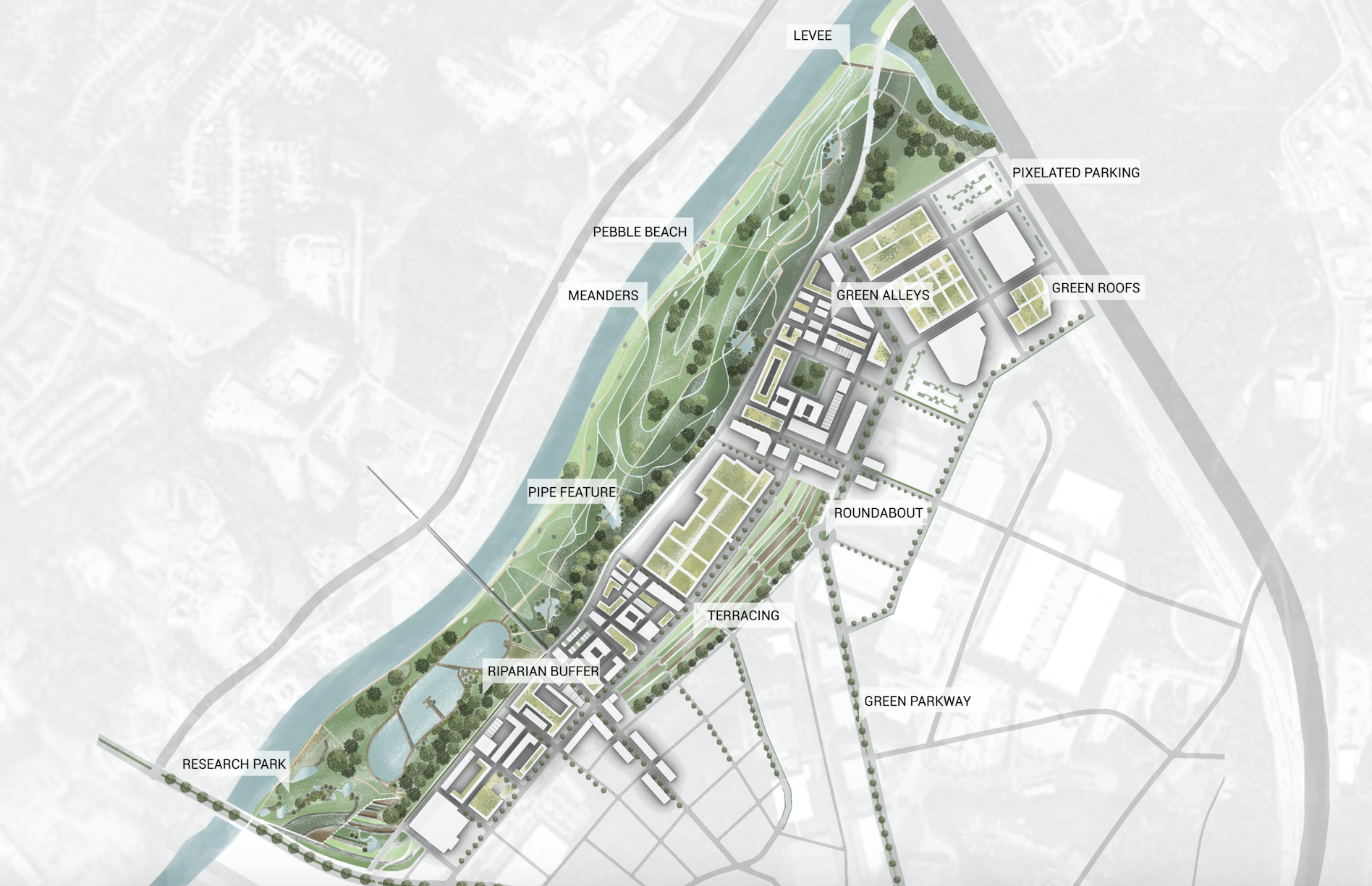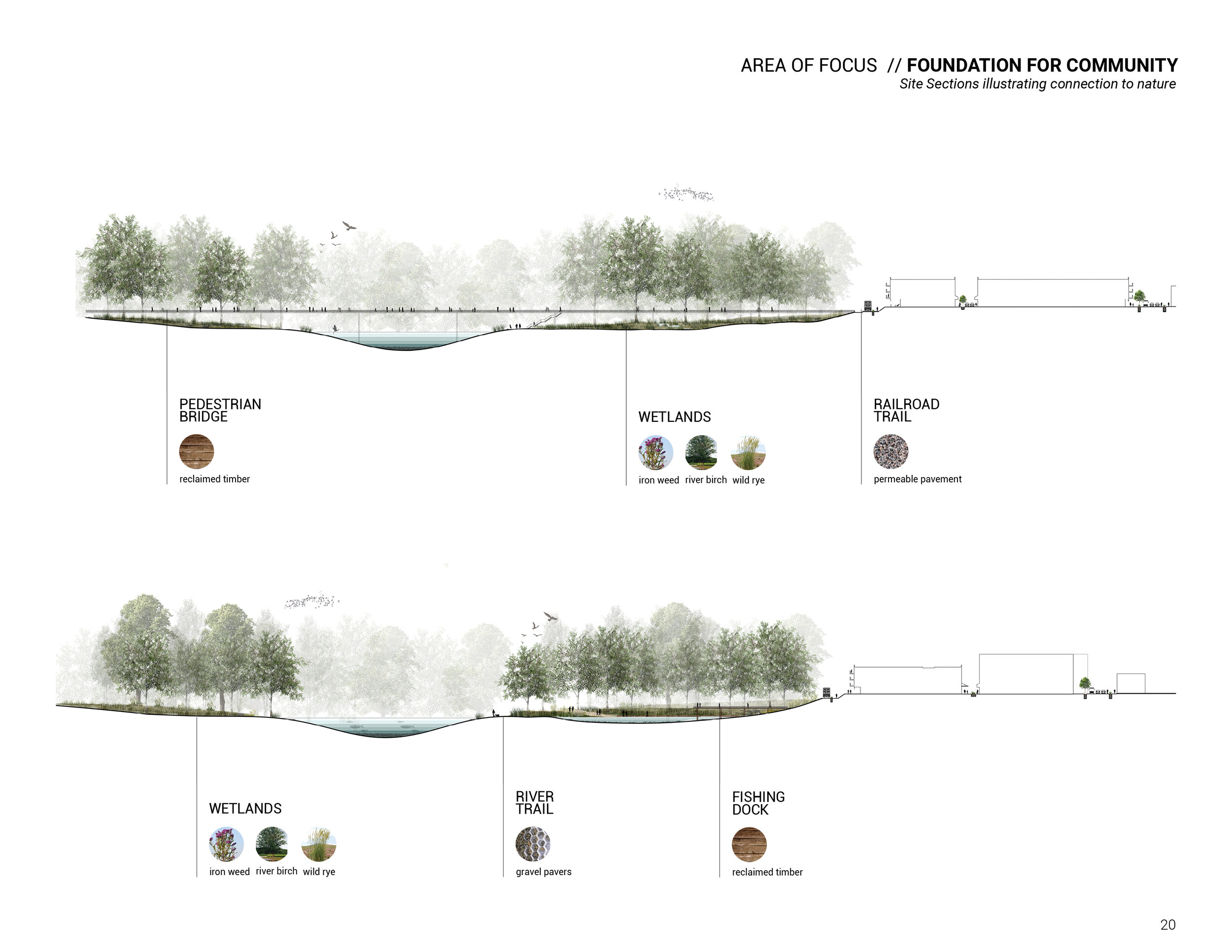EMILY KHALID
Portrait courtesy of Emily Khalid.
Designer, Laboratory Planner at WSP.
Emily Khalid is a Designer/Laboratory Planner at WSP in Atlanta, Georgia. She has a Master of Architecture from the Georgia Institute of Technology and a Bachelor of Science in Architecture from Temple University. Before her Master’s, she worked in a range of industries including transportation, commercial/retail, and multi-family developments. During her Master’s program, she gained interest in human-centered design, specifically in the realm of health & science facilities and urban design. She believes that good design should be easily accessible to all populations no matter what their demographic or socioeconomic background.
Reflections with Emily
What inspired you to pursue architecture?
From a young age, I have always been fascinated by cities. One family trip to New York City not only exposed me to beautiful buildings, but also to a buzzing, lively streetscape. Coming from a classic American suburban town where largely every home and town center looks the same, I found myself drawn to the beautiful conglomeration of building and street types New York city held. This fascination only heightened when I read Jane Jacobs in high school. Her writing about makes streets safe or unsafe; about what constitutes a neighborhood, and what function it serves within the larger organism of the city; truly drew me in to the psychology of design.
While I truly enjoy design on a macro scale, I also grew up with a love of residential architecture and anything domestic. While spending time at friends’ houses, I took note of how each house contributed to the eb and flow of that family’s routine. Was the kitchen at the center of the home? Was the family able to cook while also overlooking the living space, or were they closed off? Which worked better? I was also always in tune with which home made me feel most comfortable, and how its architecture contributed to that.
Emily’s interest in designing on a macro level led her to take several urban design studios during her master’s program. Here is a Masterplan and illustrative sections of a mixed-use community that supports the coexistence of people, industry, and nature at the Atlanta Industrial Park adjacent to the Chattahoochee River. Photo courtesy of Emily Khalid.
Exploring different residential typologies, like a cottage + detached ADU in graduate school. Photo courtesy of Emily Khalid.
What is the most important thing that you learned in the past year?
This past year, I learned how to overcome my impostor syndrome. Attending grad school was a big part of gaining the confidence I needed, but I also became more aware of when I was comparing myself to others. I took the leap in applying to jobs that, even a couple of years ago, I believed I wasn’t 100% qualified for. I was soon surprised to receive interviews from these firms I considered a reach, and even more surprised when I had no trouble navigating the interviews. I realized I had plenty of things to talk about and skills to offer, the only thing I was previously missing was confidence. I translated this same mantra when studying for my ARE exams, which I was previously sure I was going to fail. Instead, I scheduled my exams, studied tirelessly, and repeated to myself that I could do this. Since then, I have passed two exams! This year I learned that half the journey of achieving something is having the confidence to take the leap in the first place.
Achieving accessible design for vulnerable populations is important to me. At the Simtigrate Design Lab at Georgia Tech, in partnership with Emory Healthcare, I was on a team designing for people with Mild Cognitive Impairment. Photo courtesy of Emily Khalid.
Emily presenting to teammates at SimTigrate Design Lab. Photo courtesy of Emily Khalid.
What are some architectural organizations (or specific person/role model) that helped you learn to overcome an obstacle? How did they?
It is hard to pinpoint a person, but the women in the architecture community inspire me on a daily basis. Seeing young professionals earning their licenses, women juggling multiple side projects, and mothers working full time while homeschooling their children are just a few of the women that inspire me to reach higher.
Emily worked on a pro-bono design team as a part of Community Design Collaborative in Philadelphia. This is a schematic design for a community garden in the Garden Court District of Philadelphia. Photo courtesy of Emily Khalid.
If you were given the opportunity to repeat the year, what is one thing you’d do differently?
If I were to repeat 2020, I would truly savor the early months of January and February pre-pandemic. Those months were the last time I was in an academic setting working towards my Master’s degree on campus. It would also be the last time I was able to spend time with my classmates before we were all sent home indefinitely for the duration of the semester. I think I would probably have taken the time to have more conversations, hang around the campus buildings a bit longer, or grabbed a drink with a few more people before inevitably having to say goodbye. Also, because we were also not able to have a traditional graduation in person, it would have been nice to gather as a group one last time.
Emily and classmates in graduate school. Photo courtesy of Emily Khalid.
As you reflect on the past year, what did you discover as your biggest strengths?
I discovered that one of my biggest strengths is my determination to see something through. My best friend from graduate school and I always fantasized about starting a podcast together, and we made it our goal this year to bring our idea to reality. We are both like-minded in that when we say we are going to do something, we do it with our whole heart. I think this attitude and determination is the reason our podcast, The Open Plan Podcast, is up and running! We discuss all things architecture, careers, life, and the struggles we face in the path of becoming architects. While the podcast is at its beginning stages, I am proud of what we have done so far and am excited to see where it goes!
Open Plan Podcast talks candidly about all things architecture, careers, life, and the struggles young professionals face on the path to licensure. Photo courtesy of Emily Khalid.
Outside of architecture, I love to run! Here is me running my first marathon in Chicago, Illinois. Photo courtesy of Emily Khalid.











